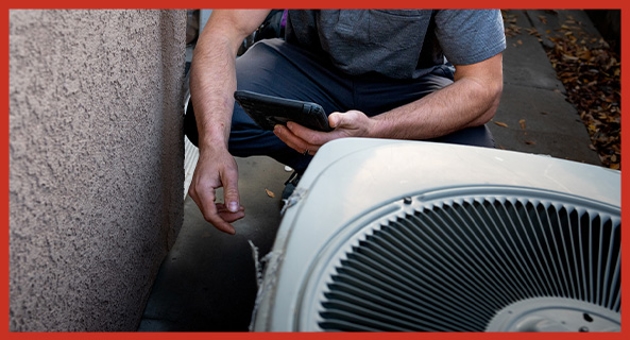


AC Maintenance in Euless, TX
Experienced HVAC Maintenance Technicians Serving Bedford, Hurst, and the Surrounding Areas
Your air conditioner relies on complex components to keep your summer cool. Your filters, coils, and fins need regular attention to perform at their best. Your thermostat needs to be recalibrated every year, and your electrical connections must be verified. Your condenser and evaporator should serve you for many years, but both components must be regularly cleaned and assessed. Routine tune-ups will prevent unexpected breakdowns during a summer heat wave, but they have a more critical side effect: longevity. Your unit will achieve its most extended service life if correctly cared for.
Are you looking for a reliable team for AC maintenance in Dallas? Contact the friendly experts at Sudden Service today by calling (817) 985-3613!
What Does AC Maintenance Include?
AC tune-ups are often referred to as preventative maintenance because your unit can overheat due to friction, over-cycling, and wear without them. All three of those problems can result in the loss of expensive components, so think of your AC tune-ups as the annual medical checkups of the HVAC world.
Your team will:
- Carefully clean your condenser coil to reduce overheating and wear and tear.
- Replenish your coolant levels to lubricate your unit and keep your energy costs down.
- Change your filters to keep your indoor air pure and prevent over-cycling.
- Recalibrate your thermostat to ensure that your AC achieves the correct temperatures.
- Inspect your ductwork to account for unnecessary energy loss. This part of your tune-up will include cleaning, which directly affects your home’s air purity.
- Assess your blower motor and belt.
- Clean your coils.
- Clean and straighten your fins to ensure adequate airflow.
- Adjust your refrigerant levels.
- Make sure your unit is achieving the correct temperatures and pressure.
- Make sure your emergency shutoff switch is functioning as it should.
- Tighten your electrical connections and check for cracks.
The outdoor unit of your AC also needs adequate airflow, so we’ll make sure you have no shrubs or vines disrupting its function. We’ll check the exterior compressor, clean the drain line, and ensure the overflow pan is dry. Problems can indicate a drain line backup, which is crucial for maintenance. Regular tune-ups will reduce the odds of carbon monoxide poisoning and fire. They’re a vital part of your family’s safety.
Schedule an AC tune-up for your Dallas or Fort Worth home by calling us at (817) 985-3613 or contacting us online!
Choose Sudden Service For AC Maintenance In Dallas, TX
Call the team at Sudden Service if you’re looking for a top-rated HVAC company in Dallas-Fort Worth, TX, to provide reliable maintenance on your air conditioner. We offer fast, professional maintenance to ensure your system runs efficiently for the entire duration of its service life!
Get started with AC maintenance by calling (817) 985-3613 to schedule service today!


Why Choose Sudden Service Heating & Air Conditioning?
Your Trusted HVAC Partner
Reliability, expertise, and a commitment to your comfort. Discover why Sudden Service is the preferred choice for HVAC solutions in Tarrant County.
-
Offering 100% Free QuotesAt Sudden Service Heating and Air Conditioning, comfort begins with clarity. Enjoy the warmth of hassle-free service as we provide free, upfront quotes—because your peace of mind is our priority.
-
Licensed & InsuredAt Sudden Service Heating and Air Conditioning, trust is our foundation. Rest easy knowing we're fully licensed and insured, ensuring your comfort is backed by expertise and security.
-
Same-Day ServiceAt Sudden Service Heating and Air Conditioning, we don't just promise comfort; we deliver it in a flash! With our 'sudden' same-day service, your HVAC needs are resolved pronto, keeping you cool and worry-free.
-
Financing Options AvailableAt Sudden Service Heating and Air Conditioning, we believe in making comfort accessible. Experience ease and flexibility with our financing options, ensuring your ideal HVAC solution is within reach.


